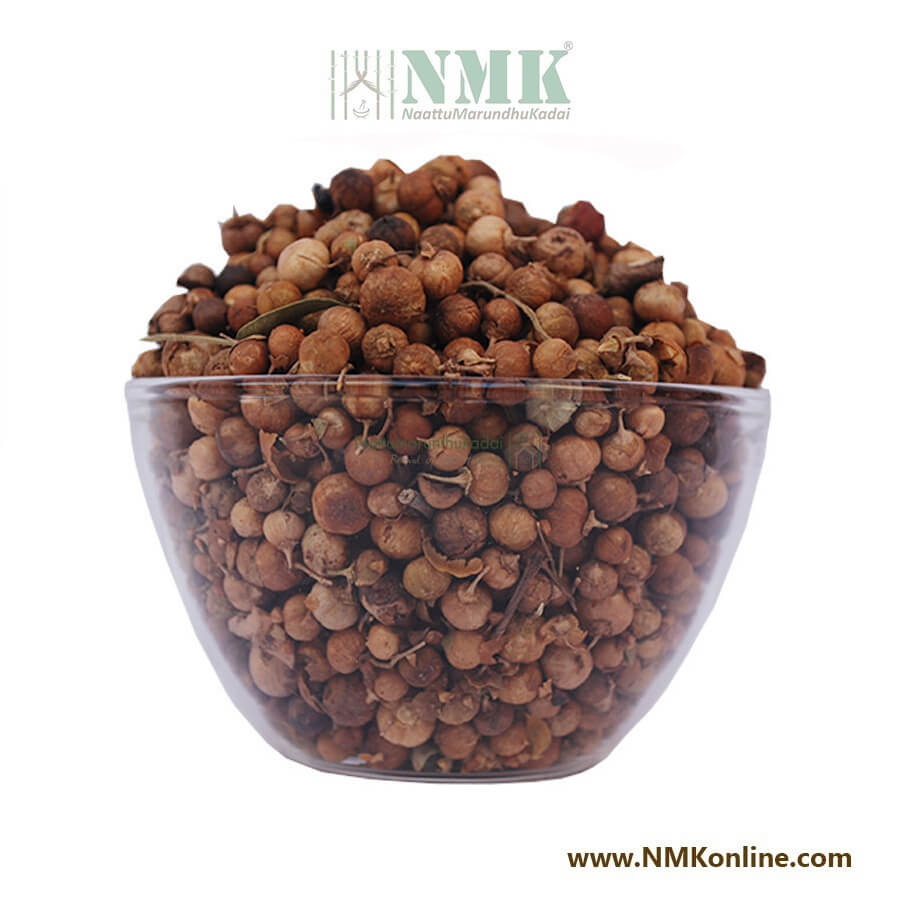Maruthani Vithai / Henna Seed Dried (Raw)
Henna or Mehandi is a medicinal plant. Its bark and seeds are used in Unani and Ayurvedic medicines. Henna is a middle-sized shrub with many branches. It yields small white or pinkish fragrant flowers in large terminal bunches and small round fruits.
Brand:
NMK
Tax Info: Tax included.Tags:
uy Maruthani Vithai Online, Maruthani Vithai Online, Maruthani Vithai Price, Benefits of Maruthani Vithai, How to use Maruthani Vithai, Buy Henna Seed Dried, Henna Seed Dried Online, Henna Seed Dried Price, Benefits of Henna Seed Dried, How to use Henna Seed Dried, Lawsonia Inermis Online, Mehandi Online, Mailanji Online, Gorintaaku Online, Internal Benefits of MaruthaniHerbal medicine for Jaundice, Herbal medicine for Nails, Herbal medicine for treat dysentery, External Benefits of Maruthani, Herbal medicine for Treats Baldness, Herbal medicine for Arthritis,Herbal medicine for Hair, Buy Maruthani Vithai online at NMKOnline(NaattuMarundhuKadai), Henna Seed Online at NMKonline(NaattuMarundhuKadai),


Botanical Name : Lawsonia Inermis
English Name : Henna, Mignonette Tree Root
Tamil Name : மருதாணி / Maruthani Vithai
Hindi Name : मेहंदी / Mehandi
Malayalam Name : മൈലാഞ്ചി / Mailanji
Telugu Name : గోరింటాకు / Gorintaaku
About Maruthani (Henna Root):-
Henna or Mehandi is a medicinal plant. Its bark and seeds are used in Unani and Ayurvedic medicines. Henna is a middle-sized shrub with many branches. It yields small white or pinkish fragrant flowers in large terminal bunches and small round fruits. This fascinating plant is known worldwide for the beautiful coloring dye used by the orientals to color their hands and body.
Internal Benefits of Maruthani (Henna Root):-
- Jaundice: You can use the bark of the henna plant for treating liver disorders like jaundice and enlargement of the liver. You can have it in henna powder from 1–5 decigrams doses. It is also beneficial for other conditions associated with the liver.
- Nails: Henna is known for treating cracked nails. Soak henna leaves in water and leave overnight, then drink this water to treat your cracked nails. Repeat for at least 10 days. You can mix butter with henna powder and use it as a poultice to treat sores filled with pus, mange, and scabies.
- Dysentery: The bark of the plant can be used to treat dysentery. Crush the henna seeds into powder and mix them into some ghee. Make small balls from the mixture and swallow them with water.
External Benefits of Maruthani (Henna):-
- Cooling agent: Henna is a great cooling agent. When applied to scrapes and burns it gives relief.
- Treats Baldness: Henna leaves can be used to treat baldness.
- Skin conditions: Henna can be used to treat skin conditions like athletes foot, rashes, and ringworm. It's also an effective sunblock.
- Arthritis: You can use henna oil for arthritic and rheumatic pain.
- Hair: Henna contains natural ingredients important for hair nourishment. It shares a great bond with hair as it helps to penetrate, cleanse, and thicken the hair shafts which improve the quality of hair. Its also used to treat dandruff. Its commonly used for coloring hair by mixing it into natural dyes.
Procurement & Agriculture Method:
90% of Our Herbs are Wild crops and 100% organic by nature, the remaining 10% are organically grown, dried, and pulverized with no chemical or preservatives.
Disclaimer:
The Consumption details and benefits listed out on our website are taken from Tamil ancient books and Siddha records, as well as their, has been further fine-tuned by our Siddha Doctors Team. Anyhow you are requested to consult your doctor before use.
No FAQs available for this product.



